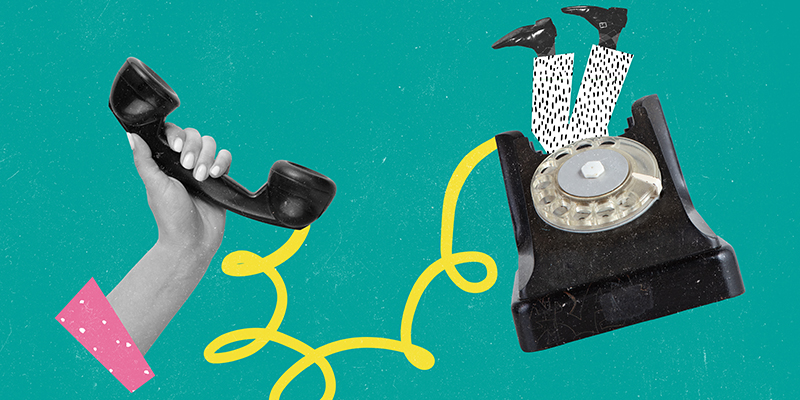In the 2000 film Cast Away, Tom Hanks’ character Chuck—stuck on a deserted island—comes across several FedEx packages left over from his crashed plane. The box containing a dress wasn’t too much help. Neither were the videotapes. The ice skates proved useful: he could fashion into tools for clearing brush and chopping wood. Chuck stops while opening the last box, however, deciding to keep it closed so he can deliver it one day. The unopened box became the symbol of Chuck’s hope he’d one day escape.
In an interview promoting the 2000 film, a fan asked director Robert Zemeckis what was in the box. Maybe something Chuck could have used? Yes, joked Zemeckis. In fact, it contained a solar-powered, GPS-enabled satellite phone. It was smart of the screenwriter (William Broyles Jr.) never to let Chuck open it, then.
That’s one of the troubles with technology: it’s always insistent on solving things. If you enjoy indoor plumbing or MRIs, that’s a good thing. But for contemporary thriller authors, smartphones and technology can undermine narrative tension: you can ruin almost any good plot by handing your protagonist a smartphone. In Agatha Christie’s Murder on the Orient Express, the train gets stuck in a snowdrift en route to Slavonski Brod; rather than take over a murder investigation with the primary suspects stuck on the tracks, Hercule Poirot could have phoned for help. Realistic if it were a contemporary plot? Yes, but hardly thrilling. Stephen King’s The Shining might have ended early with a few well-placed texts from Wendy. (Again: snow helps.) The closer we get to 2025, the more contemporary authors are left wondering how to build compelling stories set in the modern world.
The problem with smartphones is that they make life easier for everyone, but interesting stories typically feature characters who don’t have it easy. Phones can answer the questions authors might like to leave unanswered for a while. Putting characters in dangerous situations often requires that they’re misinformed; if they knew they were putting themselves in harm’s way, they’d simply stay home. And part of the fun is seeing how protagonists figure things out without Googling it. We want Sherlock Holmes to know what a blue carbuncle looks like because he’d been tracking the ads in The Times and saved it in that powerful brain of his—not because he asked Bing.
One potential solution to the smartphone “problem” is for writers to abandon the 21st century altogether. In Sunburn, author Laura Lippman places her two main characters, Adam and Polly, in a Delaware beach town in 1995. (Or, as some Gen Zers call it lately, the late 1900s). In Sunburn, there are payphones. There are private investigators. Polly (Real name Pauline? Not so easy to Google that in 1995) has a labyrinthine identity that, in 2025, someone might solve with a quick glance at her Instagram page. One of the many reasons the book is such a fun read is that the characters don’t have those conveniences at their disposal.
Another solution is to lean into the digital world and embrace its problems. In my upcoming thriller The Perfect Home, I tried to do that: protagonist Dawn Decker is a victim of the image she and her husband Wyatt cultivated on their home renovation reality TV show. Rather than offering a solution, their high-profile media presence becomes a complication. Dawn is stuck with the label of the acerbic foil because that’s how the public knows her from TV and social media. When she needs help, her husband knows how to use her reputation against her. If one of the complaints about smartphones is that they have us living in a tiny-screened alternative universe, why not make that an obstacle for your character to overcome?
In writing the book, I realized smartphones aren’t much of a literary problem at all. It turns out 21st-century characters have plenty to contend with, smartphones or not. Take the climate: it’s getting hotter. A protagonist might not always be able to fight that fact with their wits or their fists, but sometimes we have to confront the vulnerabilities we face today. Hurricane Helene demonstrated how frail the infrastructure of our digital conveniences really is—one bad storm and a town is back in the Stone Age, an island with no hope of reaching the outside world. Interruptions don’t even require historic disasters. Anyone who’s been to a crowded music festival (a veritable storm of wireless activity) knows texts might not come through right away. There’s plenty of suspense for an author to milk when a critical text gets stuck on “Sending…”
There are downsides to convenience, even in real life. What you type into a search engine might end up on a large corporation’s database three thousand miles away. Prolonged cell phone use might hamper a child’s upbringing and make them unable to develop the skills needed to navigate adult life—maybe not fodder for a thriller novel, but still an engrossing problem. And despite fingerprint-guarded lock screens and face-reading AI, it sometimes only takes an email address and an SMS code to slip into someone else’s identity and make off with their money.
I love some good historical fiction, but there’s something particularly ominous about a story in which contemporary people have problems that could only happen today. A good thriller blows up the problem to monster proportions, but hopefully, it also says: hey, you see this thing we all rely on? Here’s how it can suddenly become a disaster. Our phones solve problems, but they can also turn on us. Dawn’s life goes from reality TV perfect—with an audience of happy viewers and social media followers—to near-absolute solitary confinement because people, even her friends, believe what their phones tell them. Why does it make a plot feel realistic when our favorite conveniences work against us? Dramatic irony, maybe. But perhaps it’s also because we have our own sneaking suspicions about how much better off they leave us.
Gillian Flynn teased twists with ambiguous texts in Gone Girl. Stephen King integrated Zoom meetings into his COVID-inspired crime novel Holly. So maybe the problem isn’t that phones have to get in the way of a fun plot. Maybe the problem with the digital world is that it reminds us that not everything about the 21st century is easy-peasy, and rather than feeling like an escapist plot for distraction-starved readers, contemporary suspense plots are starting to hit all too close to home.
***


















